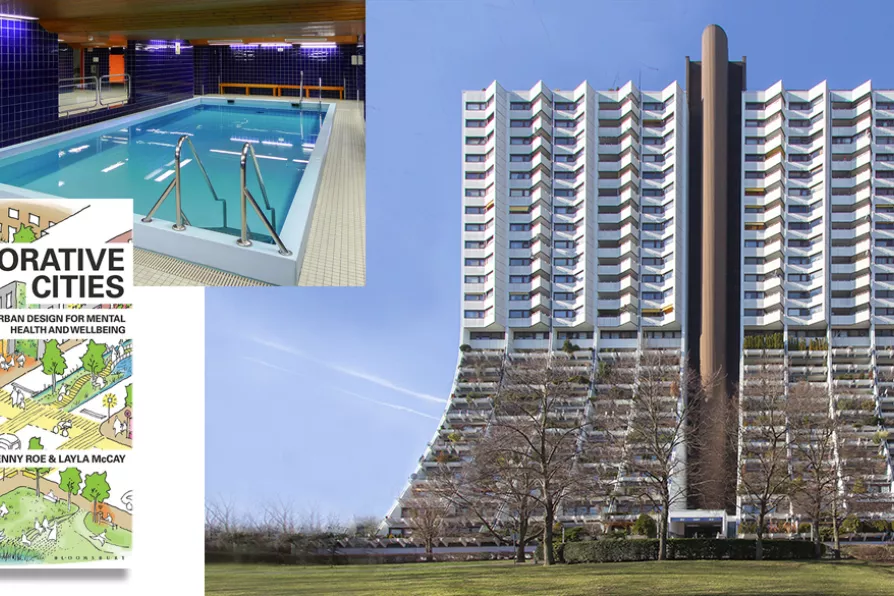SCOTT ALSWORTH suggests that video games have a lot to learn the rich tradition of Marxist theatre

 SPECTACULAR WELFARE OASIS: The Wohnpark Alterlaa social housing estate in Vienna, designed by Harry Gluck has, among other amenities, indoor and rooftop swimming pools
[(L to R) Viennaphotographer/CC and (pool) Thomas Ledl/CC]
SPECTACULAR WELFARE OASIS: The Wohnpark Alterlaa social housing estate in Vienna, designed by Harry Gluck has, among other amenities, indoor and rooftop swimming pools
[(L to R) Viennaphotographer/CC and (pool) Thomas Ledl/CC]
Restorative Cities: Urban Design for Mental Health and Wellbeing
by Jenny Roe and Layla Mc Cay
Bloomsbury £28.46
INTEREST in mental illness has grown exponentially over recent years and informs many a popular and undoubtedly progressive analysis. However, there is a noticeable gap between awareness of the devastation that such illness can bring on the one hand and insight into its origins and how it can best be tackled on the other.
Attention on origins still tends to focus on the bio-medical model which highlights genetics and physiology, emphasis in recovery being upon medication and the individual’s ability or not to engage with health services offered.
The idea that there might be a whole political and economic basis to mental ill health and that there is a consequent need to create collective problems to social problems being very rarely discussed.

STEVE ANDREW is intrigued by a timely and well-researched book that demonstrates the conflicted history of the central Asian country

When privatisation is already so deeply embedded in the NHS, we can’t just blindly argue for ‘more funding’ to solve its problems, explain ESTHER GILES, NICO CSERGO, BRIAN GIBBONS and RATHI GUHADASAN












